 W
WMiguel Ángel Ayuso Guixot, MCCJ is a Spanish prelate of the Catholic Church and an historian of Islam. He has been an official of the Roman Curia since 2012 and an archbishop since 2016.
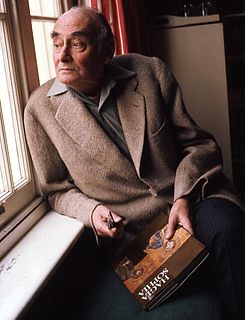 W
WJohn Patrick Douglas Balfour, 3rd Baron Kinross was a Scottish historian and writer noted for his biography of Mustafa Kemal Atatürk and other works on Islamic history.
 W
WCharles Adrien Casimir Barbier de Meynard, born at sea on a ship from Constantinople to Marseille, was a nineteenth-century French historian and orientalist.
 W
WCarl Heinrich Becker was a German orientalist and politician in Prussia. In 1921 and 1925–1930 he served as Minister for Culture in Prussia (independent). He was one of the founders of the study of the contemporary Middle East and a reformer of the system of higher education in the Weimar Republic.
 W
WLeone Caetani, Duke of Sermoneta, was an Italian scholar, politician and historian of the Middle East.
 W
WWilliam C. Chittick is a philosopher, writer, translator and interpreter of classical Islamic philosophical and mystical texts. He is best known for his work on Rumi and Ibn 'Arabi, and has written extensively on the school of Ibn 'Arabi, Islamic philosophy, and Islamic cosmology.
 W
WMichael Allan Cook FBA is a British historian and scholar of Islamic history. Cook is the general editor of The New Cambridge History of Islam.
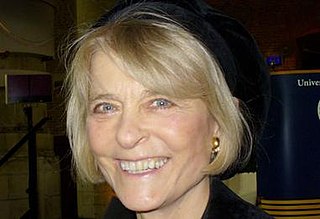 W
WPatricia Crone was a Danish-American Orientalist, and historian specializing in early Islamic history. Crone was a member of the Revisionist school of Islamic studies and questioned the historicity of the Islamic traditions about the beginnings of Islam.
 W
WReinhart Pieter Anne Dozy was a Dutch scholar of French (Huguenot) origin, who was born in Leiden. He was an Orientalist scholar of Arabic language, history and literature.
 W
WAbraham Geiger was a German rabbi and scholar, considered the founding father of Reform Judaism. Emphasizing Judaism's constant development along history and universalist traits, Geiger sought to re-formulate received forms and design what he regarded as a religion compliant with modern times.
 W
WSir Hamilton Alexander Rosskeen Gibb, known as H. A. R. Gibb, was a Scottish historian on Orientalism.
 W
WIgnác Goldziher, often credited as Ignaz Goldziher, was a Hungarian scholar of Islam. Along with the German Theodor Nöldeke and the Dutch Christiaan Snouck Hurgronje, he is considered the founder of modern Islamic studies in Europe.
 W
WJoel Hayward is a New Zealand-born British scholar, writer, and poet. The Nation referred to him as a "noted scholar" on international conflict and strategy. He is best known for his published books and articles on strategic and security matters, including the use of air power, his 2003 biography of Horatio Lord Nelson, his writing and teaching on the Quranic (Islamic) concepts of war, strategy and conflict, and his works of fiction and poetry.
 W
WEfraim Karsh is an Israeli–British historian, the founding director and emeritus professor of Middle East and Mediterranean Studies at King's College London. Since 2013, he serves as professor of Political Studies at Bar-Ilan University. He is also a principal research fellow and former director of the Middle East Forum, a Philadelphia-based think tank. He is a vocal critic of the New Historians, a group of Israeli scholars who have questioned the traditional Israeli narrative of the Arab–Israeli conflict.
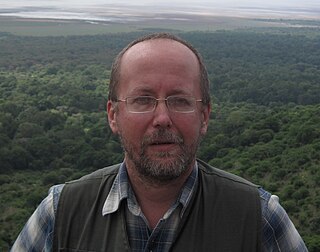 W
WAndrey Vitalievich Korotayev is a Russian anthropologist, economic historian, comparative political scientist, demographer and sociologist, with major contributions to world-systems theory, cross-cultural studies, Near Eastern history, Big History, and mathematical modelling of social and economic macrodynamics.
 W
WHenri Lammens was an Orientalist historian and Jesuit, who wrote on the early history of Islam.
 W
WNehemia Levtzion was an Israeli scholar of African history, Near East, Islamic, and African studies, and the President of the Open University of Israel from 1987 to 1992 and the Executive Director of the Van Leer Jerusalem Institute from 1994 to 1997.
 W
WBernard Lewis, was a British American historian specialized in Oriental studies. He was also known as a public intellectual and political commentator. Lewis was the Cleveland E. Dodge Professor Emeritus of Near Eastern Studies at Princeton University. Lewis' expertise was in the history of Islam and the interaction between Islam and the West.
 W
WDavid Samuel Margoliouth, FBA was an English orientalist. He was briefly active as a priest in the Church of England. He was Laudian Professor of Arabic at the University of Oxford from 1889 to 1937.
 W
WJane Dammen McAuliffe is a prominent American educator, internationally known scholar of Islam and the inaugural Director of National and International Outreach at the Library of Congress. She is a President Emeritus of Bryn Mawr College and former Dean of Georgetown College at Georgetown University. As a specialist in the Qur'an and its interpretation, McAuliffe has produced the six-volume Encyclopaedia of the Qurʾān and continues to lead the editorial team for the online edition of the work. She held previous appointments at Emory University as professor and associate dean and at the University of Toronto as Chair of the Department for the Study of Religion and Professor of Islamic Studies in the Department of Near and Middle Eastern Civilizations. She received her BA in Philosophy and Classics from Trinity Washington University and her MA in religious studies and PhD in Islamic studies from the University of Toronto.
 W
WAlphonse Mingana was an Assyrian theologian, historian, Syriacist, orientalist and a former priest who is best known for collecting and preserving the Mingana Collection of ancient Middle Eastern manuscripts at Birmingham. Like the majority of Assyrians in the Zakho region, his family belonged to the Chaldean Catholic Church. Alphonse was born to Paolus and Maryam Nano, and had seven siblings.
 W
WSir William Muir, Order of the Star of India was a Scottish Orientalist, and colonial administrator, Principal of the University of Edinburgh and Lieutenant Governor of the North-West Provinces of India.
 W
WTheodor Nöldeke was a German orientalist and scholar. His research interests ranged over Old Testament studies, Semitic languages and Arabic, Persian and Syriac literature. Nöldeke translated several important works of oriental literature and during his lifetime was considered an important orientalist. He wrote numerous studies and contributed articles to the Encyclopædia Britannica.
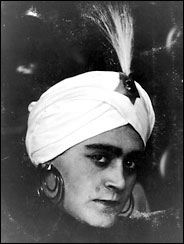 W
WLev Nussimbaum, who wrote under the pen names Essad Bey and Kurban Said, was a writer and journalist, born in Kyiv to a Jewish family. He lived there and in Baku during his childhood before fleeing the Bolsheviks in 1920 at the age of 14. In 1922, while living in Germany, he obtained a certificate claiming that he had converted to Islam in the presence of the imam of the Turkish embassy in Berlin. He created a niche for himself in the competitive European literary world by writing about topics that Westerners, in general, knew little about - the Caucasus, the Russian Empire, the Bolshevik Revolution, newly discovered oil, and Islam. He wrote under the name of Essad Bey in German.
 W
WJoseph Toussaint Reinaud was a French orientalist.
 W
WUri Rubin is a Professor in the Department of Arabic and Islamic Studies at Tel Aviv University in Israel. His areas of research are early Islam, Qur'an exegesis (tafsir), and early Islamic tradition. He has authored a number of books on the subjects, and also contributed entries to the Encyclopaedia of Islam and other works.
 W
WCarlos Andrés Segovia y Corral, 2nd Marquis of Salobreña is a Spanish nobleman and academic specialising in philosophy and religious studies.
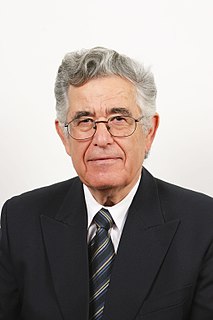 W
WMoshe Sharon is an Israeli historian of Islam who has been called "Israel's greatest Middle East scholar."
 W
WDenise A. Spellberg is an American scholar of Islamic history. She is professor of history and Middle Eastern Studies at the University of Texas at Austin. Spellberg holds an A.B. in History from Smith College (1980) and an M.A., M. Phil., and a PhD (1989) in Middle Eastern History from Columbia University.